Major £8.8bn plan to save Liverpool City Region economy revealed
An ambitious plan hoped to unlock £8.8bn worth of projects for the Liverpool City Region has today been submitted to the Government.
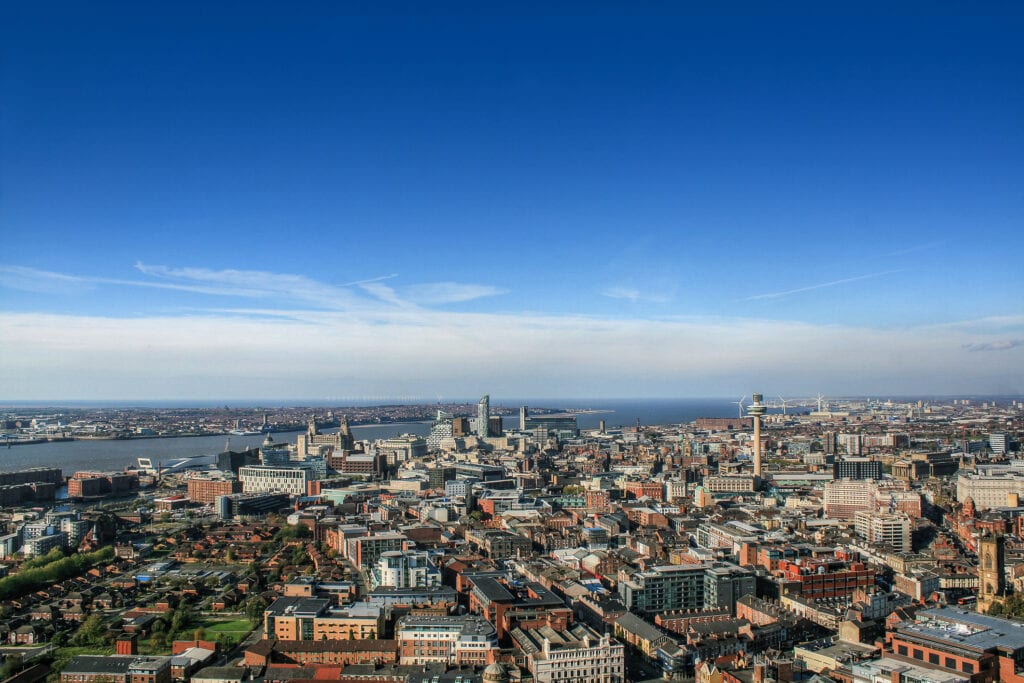
Metro Mayor Steve Rotheram has unveiled the ‘Building Back Better’ plan, which is aimed at helping the region recover from the coronavirus crisis, and is being backed by high-profile city figures from business, academia, the social economy and public sector.
The combined authority said the projects would create over 100,000 jobs in total, with the plan’s proposals based on four themes: the business ecosystem, people-focused recovery, place, and a green recovery.
The economic recovery plan for the city region has set out how a £1.4bn investment from the Government could unlock £8.8bn of projects, which could all start in the next 12 months.
It has identified 40 fully-costed, “shovel-ready” schemes, some of which are already underway, as well as medium and long-term plans, such as the Mersey Tidal Power project, that would play a “key role” in recovery – creating 94,000 permanent jobs and a further 28,000 in construction.
It’s hoped these projects would use the city region’s “unique assets” to contribute to the UK’s long-term sustainable energy mix, while creating thousands of jobs.
Announcing on Friday that the plans have been submitted to the Government, Mayor Rotheram said: “This pandemic has rocked us all and we still face tough times ahead, but my ambition to build a globally competitive, environmentally responsible and socially inclusive economy for the whole of our region remains undimmed.
“Before Covid-19, the city region’s growth rate of 3.5% was much higher than national levels, with well-above average productivity growth based on ten years of strong economic progress. We will build on these solid foundations.
“Alongside our strengths, we know that we still face hugely significant underlying challenges in health, education and skills and economic inactivity in our communities.
“Our recovery plan is focused on tackling these challenges and supporting the people of our city region – tackling inequality, creating jobs, supporting businesses, driving innovation, building new homes, and giving people the skills, they need to fulfil their ambitions.
“The challenge ahead is beyond the capabilities of any one city region, or any one organisation, to deal with alone.
“It is only by working together, with all of our partners across the city region and with government, that we will prevail and Build Back Better than ever.”
The 40 projects identified by the city region include:
Manufacturing Technology Centre’s (MTC) Modern Methods of Construction programme. Worth £155m
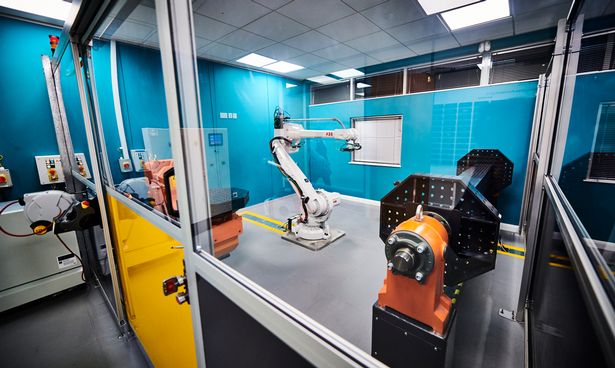
The Manufacturing Technology Centre,
The Manufacturing Technology Centre, based in Liverpool’s Knowledge Quarter, is an independent research and tech company, which aims to bridge the gap between academia and industry.
The next stage of its expansion in the city region focuses on excellence in Modern Methods of Construction (MMC) – the project pinpointed by the combined authority.
The first phase will mean developing new, more efficient methods for housing retrofitting, and the concept design process has begun.
The second phase will be about new methods of modular housing construction – and will include a skills and development centre in Liverpool.
Schemes include the Manufacturing Technology Centre’s modern methods of construction project
The entire project could potentially be worth £155m for the region.
Charlie Whitford, associate director of strategic development, said:
“The MMC Project can play a key role in supporting the Liverpool City Region’s Economic Recovery Plan with a boost to advanced manufacturing and the construction sector whilst creating new jobs, providing skills to young people and reskilling existing professionals into new sectors and driving inward investment.
“Using the expertise and experience of the MTC, along with our proven track record of supporting Government organisations to deliver successful projects, the project is building the infrastructure that is required to deliver new capabilities to the area.
“Importantly, these capabilities will synergise to provide new, high quality homes and build communities, at scale, up to 50% faster with an estimated 33% reduction in cost.
“With backing from academia and supply chain companies, the project will deliver a greener, more eco-friendly future for construction with thousands of new homes on the horizon.”
Glass Futures. Worth £54m
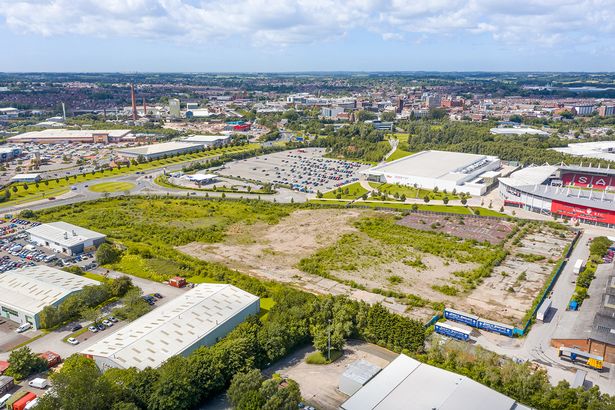
Glass Futures, St Helens
Glass Futures is an industry-backed research and technology project involving large companies in the industry, based in St Helens.
The £54m project would see a new 90,000 square foot facility centred around a 30 tonne per day low carbon demonstration furnace, to be built in Peasley Cross.
The site would contain the world’s first openly accessible, commercially available, multi-disciplinary glass melting facility with provision for research and development trials to decarbonise the UK glass industry.
Adrian Curry, managing director of Encirc, one of the UK’s major glass container manufacturers based in Chester, said: “I am delighted to see the experimental Glass Futures pilot plant and research facilities coming closer to fruition in St Helens, with its inclusion in the Liverpool City Region’s Economic Recovery Plan. Increasing our global competitiveness and environmental sustainability is more important now than ever before.
“Glass Futures is a game changer leading to substantial improvements in manufacturing methodology, enhanced automation and increased efficiencies whilst targeting the removal of CO2 from the manufacturing process, significantly enhancing sustainable growth in the Liverpool City Region.”
The LCR Hydrogen Economy Programme . Worth over £600m
The combined authority said this project would start with the procurement of 40 hydrogen buses and a hydrogen refuelling station in Halton, which could be delivered for £27.8m. This phase is expected to be operational by late 2021.
It said the city region is “perfectly positioned” to exploit the potential of hydrogen, with strategic advantages including hydrogen production assets and knowledge.
Details are so far vague, but the authority said there are various medium and long term opportunities for the city region in the UK’s hydrogen economy, which is estimated to grow to hundreds of millions by 2025, and to around £90bn by 2050.
The authority hopes the entire programme will become worth £600m to the region.
Frank Rourke, UK country manager at Runcorn-based chemical firm INOVYN, said: “Green recovery is a key element of this ambitious economic recovery plan and the Liverpool City Region is perfectly positioned to exploit the potential of hydrogen as a path towards a zero-carbon economy.
“Low carbon hydrogen can be used for heat, decarbonisation of industry, and transport fuels as well as contributing towards energy security.
“The city region has a long history at the forefront of this industry – we’ve been making hydrogen in Runcorn for more than a hundred years – and the burgeoning hydrogen economy has a key role to play as we build an economy for the future.”
Shakespeare North Playhouse. Worth £3m
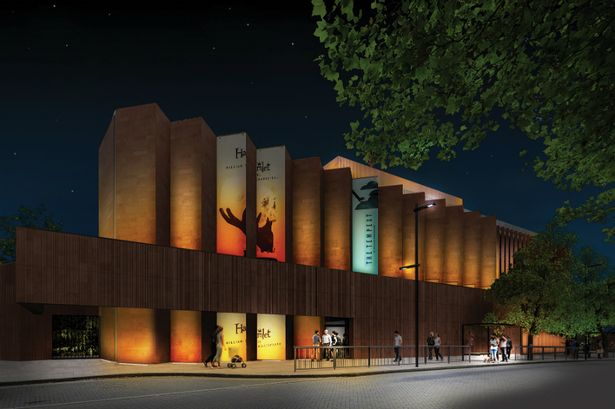
Shakespeare North Playhouse CGI
Currently being built in Prescot, The Shakespeare North Playhouse will celebrate the area’s links from the Earls of Derby to Shakespeare himself.
Artist’s impression of the Shakespeare North Playhouse that is due to open in Prescot in 2022. (Image: Shakespeare North Playhouse)
It’s set to open in 2022 as a flexible theatre with capacity for between 320 and 472 seats, putting on a contemporary programme of events and performances.
The combined authority said it will engage with the Department for Media, Culture and Sport on existing and new recovery funding lines for an additional £3m to secure the project’s construction delivery.
Southport Theatre and Convention Centre. Worth £70m
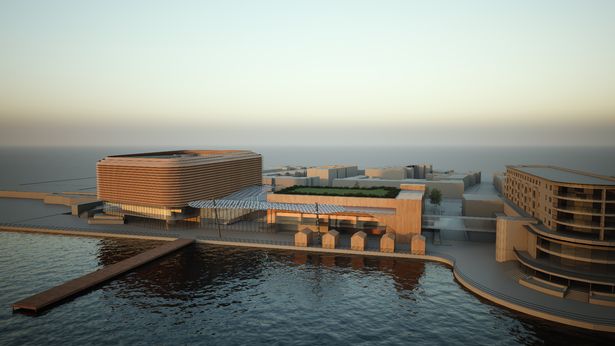
Southport Theatre and Convention Centre CGI
The combined authority is also planning to replace Southport’s existing theatre and conference centre to add £25m per annum to the local economy and catalyse the transformation of the town centre, culminating in a new ‘Southport Square’.
The scale of the project, and the impact it can create, requires an investment of over £25m, the authority said.
National Packaging Innovation Centre. Worth £60m
In partnership with Unilever, the combined authority said it is developing plans for an open-access innovation centre focused on the commercialisation of innovative sustainable packaging solutions.
If successful, the centre would enable the UK to further anchor itself into the global £1 trillion packaging market.
A ‘people-focused’ recovery
The authority also said it wanted to work in partnership with the Government on various “people-focused” programmes across employment, skills, health and inequality.
They include:
- A fully funded September Offer for school leavers to have a funded place in education, a job with training, apprenticeship or training programme, with increased levels of bursary funds for providers to respond to needs .
- A young person’s guarantee, ensuring that those aged under 25 who have been out of work for more than six months can get training, an apprenticeship or a job. The move would require the delivery of substantial numbers of ‘Kickstarter’ jobs in the city region.
- Increased numbers of apprenticeships created via incentives for businesses and more flexibility around use of the apprenticeship levy.
- A business-led skills programme to deliver recovery.
- A digital skills programme to retrain businesses and workers for an increasingly digital world.
- A national digital poverty programme, which improves access to digital connectivity and devices for those that need it.
- A community and voluntary sector resilience programme providing infrastructure and financial resource for the sector to engage with those impacted by the pandemic.
- An enhanced schools catch-up programme to help pupils make up the lost learning, to ensure that young people are not permanently disadvantaged.
- A Liverpool City Region creative curriculum to capture the talent of young people
For more information visit liverpoolcityregion-ca.gov.uk/buildingbackbetter/
